It is 5 pm. But these days, dusk doesn’t shy away from paying an early visit to the Wah Tea Estate Plantation Stay in Palampur, Himachal Pradesh. Early nightfall means Deepak Prakash (63) must head home quickly from his favourite spot — the middle of the dizzying incline of Kangra’s tea gardens.
At his home-turned-homestay, ‘The Lodge at Wah’, an eager audience awaits him.
A tea connoisseur by day, Deepak turns into a storyteller by night. Cups of chai are passed around the group as he begins his tale: “In the early 1900s, our forefather Sheo Parsad owned a simple provisions shop in Dehradun. Here, he also sold tea that he purchased from Goodrich Tea Estate in Kaulagarh.”
Advertisement
Sheo soon discovered that the beverage was a hit with customers. Thus began his quest to diversify into tea. For ages, the ‘Chaiwalas’ — as Deepak’s family came to be respectfully known — continued their storied tradition of growing and brewing tea. Fun fact: by 1960, they were producing approximately 10 million kilograms of !
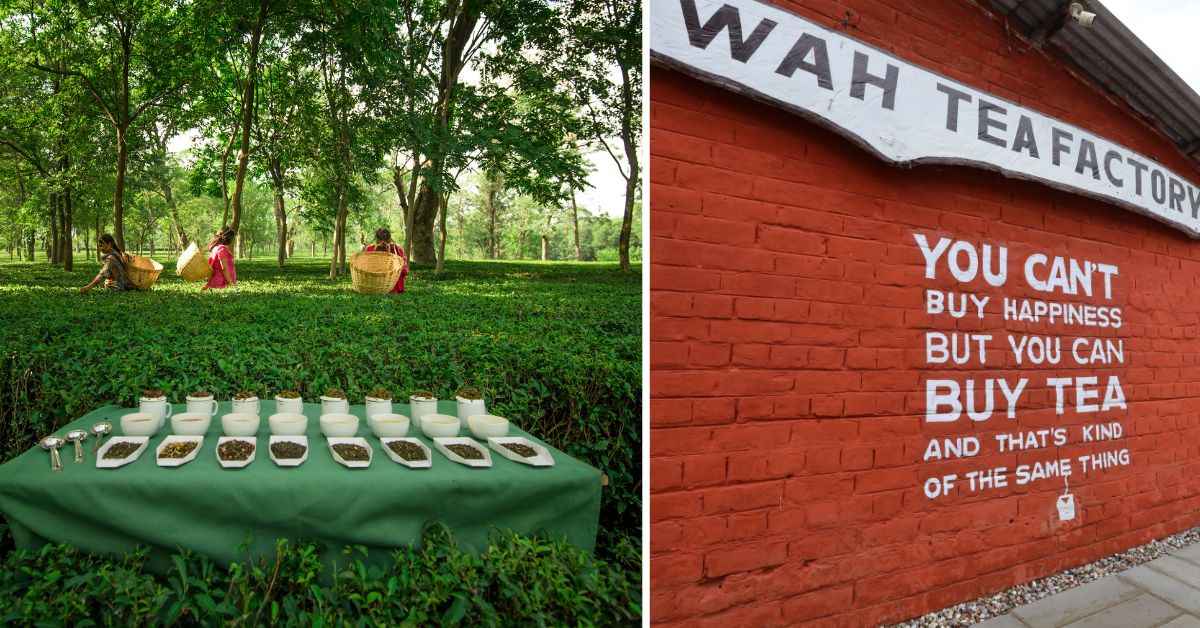
The Wah Tea Estate was started in 1857 by the British and has witnessed decades of tea cultivation.
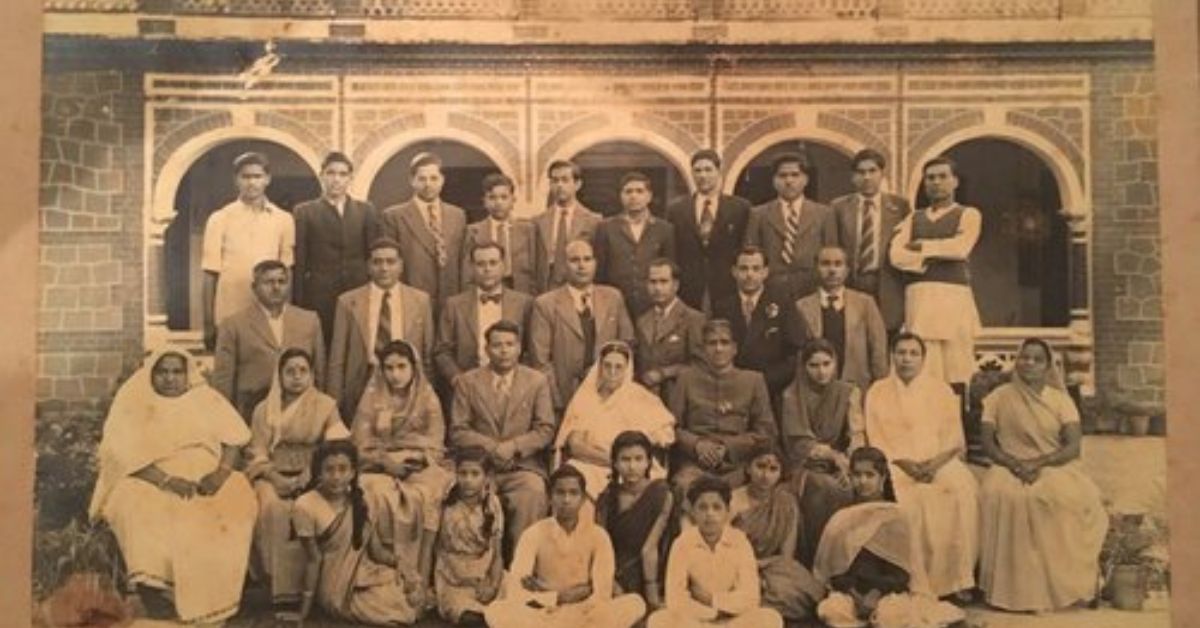
Deepak’s family was known as the ‘Chaiwalas’ because of their long-winded history with tea.
But it is not just the family’s tryst with tea that is superimposed against a rich history; it’s also the land on which the homestay now stands. As Deepak shares, it dates back to 1857, when it was first established by the British! The estate saw decades of continuous cultivation and even survived an earthquake which struck the region in 1905.
Deepak’s son, Surya Prakash, a fourth-generation tea virtuoso, recalls the vacations he spent at the family’s tea estate as some of his best. However, these visits were short-lived, owing to the absence of a family home in Kangra. It was during one such trip that Deepak had his moment of catharsis. “I decided to build a home. A sustainable one,” he shares.
Advertisement
He reasons, “I grew up on tea estates, and have always enjoyed . For many years, this was missing for us at Wah Tea Estate. Spending time in the city meant having to deal with pollution and other carcinogenic substances. I felt it was time to correct that.”
What started as an idea for a single cottage soon matured into a homestay with three. “Dad got a tad bit excited,” Deepak’s daughter-in-law, Upasana, says.
[IMG alt="The brews found at The Lodge at Wah are prepared from tea leaves that are grown using organic methods of farming
"]
The brews found at The Lodge at Wah are prepared from tea leaves that are grown using organic methods of farming.
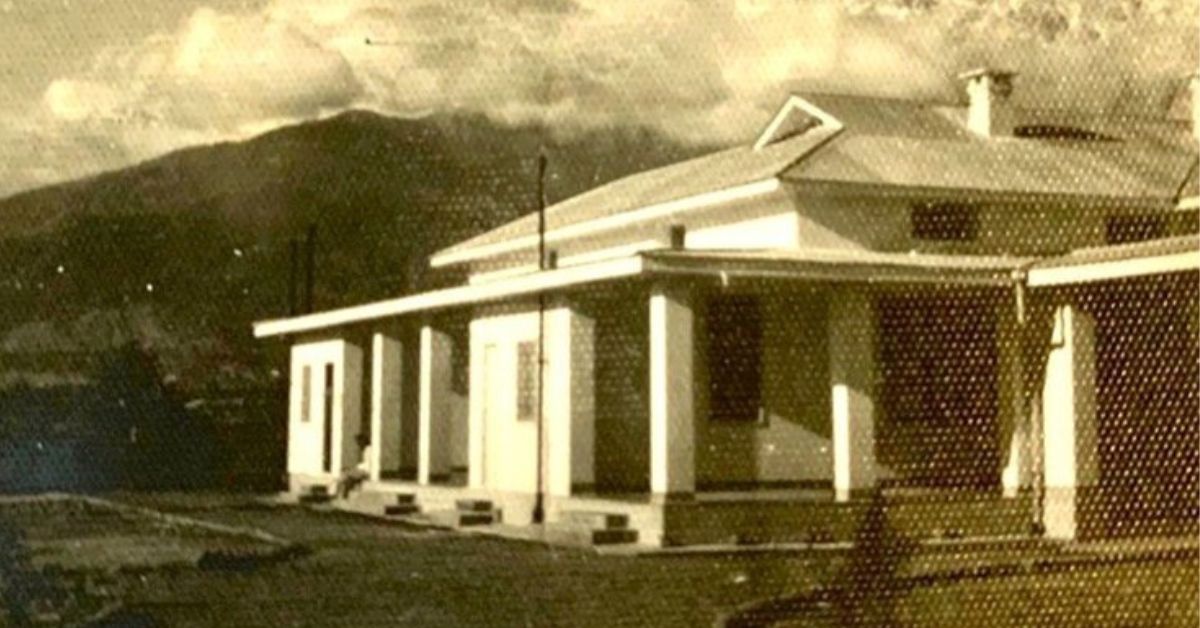
The Wah Tea Factory was where the manufacturing, processing and brewing of tea took place to then be retailed across India.
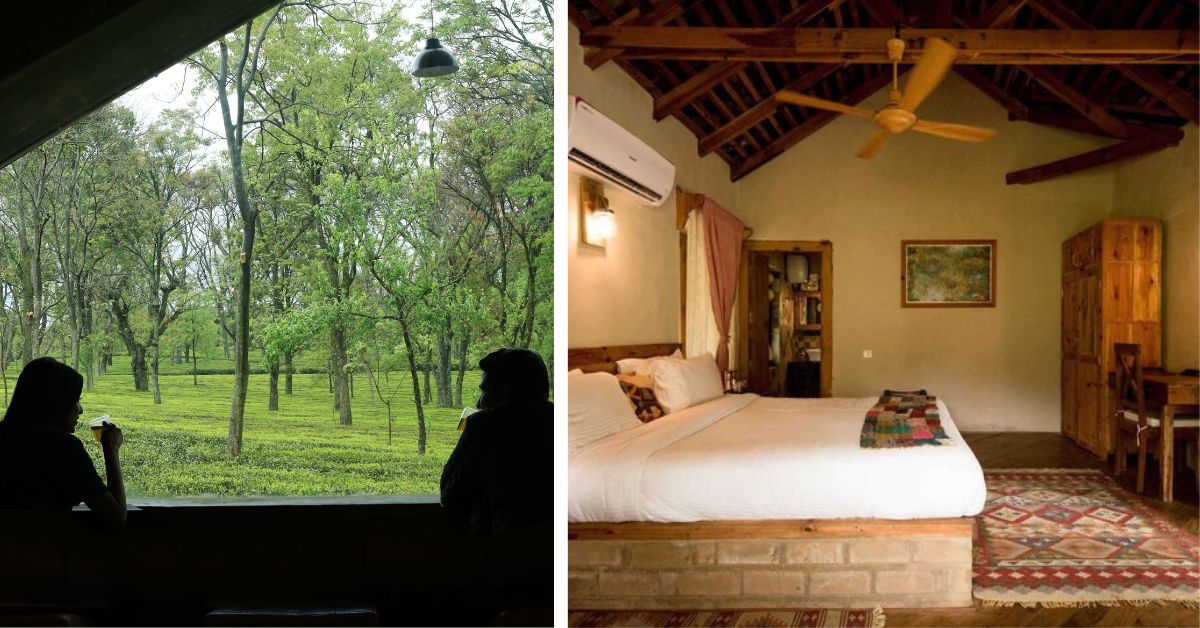
The cottages at The Lodge at Wah are done up sustainably with wood, slate and mud — featuring extensively in the decor.
But the rules were clear. Everything had to imbue sustainability at its core. Upasana, taking us on a verbal tour of the property, shares that the structures were built entirely from mud sourced during on-site excavation, along with stone, wood, and slate.
Advertisement
The cottages are an aesthetic rebuttal to the assumption that sustainability comes at the price of beauty. We virtually go from room to room, that are a carousel of local architectural sensibilities, right from their roofs — inspired by the gaddi tribe homes which imbibe ingenious leakage management concepts — to the decor. Hand-chiselled river stones factor into the construction, and the no-paint mandate is taken seriously.
But it is the woodwork that has the best story to tell.
Upasana articulates it. “There was an old Palampur courthouse that was being demolished during the . We were able to pick up and recycle the cedar and pine wood. The roof lining details, bannisters from witness stands, and even whole doors and windows are originally from the old courthouse.”
Advertisement
It took six years for the dream project to see the light of day. But when it did, Palampur smiled.
At The Lodge at Wah, you name the chai you are in the mood for, and chances are it is grown, processed, brewed and served right on the land. During the tea tour, you’ll have a chance to make an acquaintance with these different varieties which will give you an insider pass into the tea manufacturing process. Learn the nuances of tea production, including the processes of withering, rolling, fermenting, drying, and sorting.
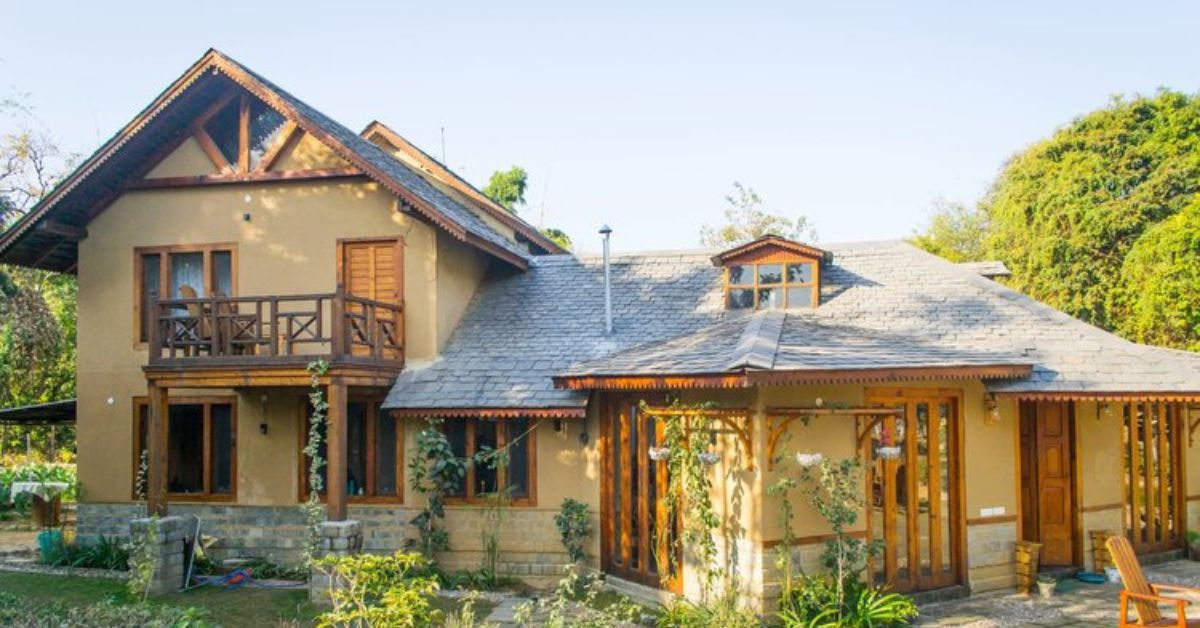
The Lodge at Wah is a sustainable homestay in Palampur, Himachal Pradesh that is built on a legendary tea estate.
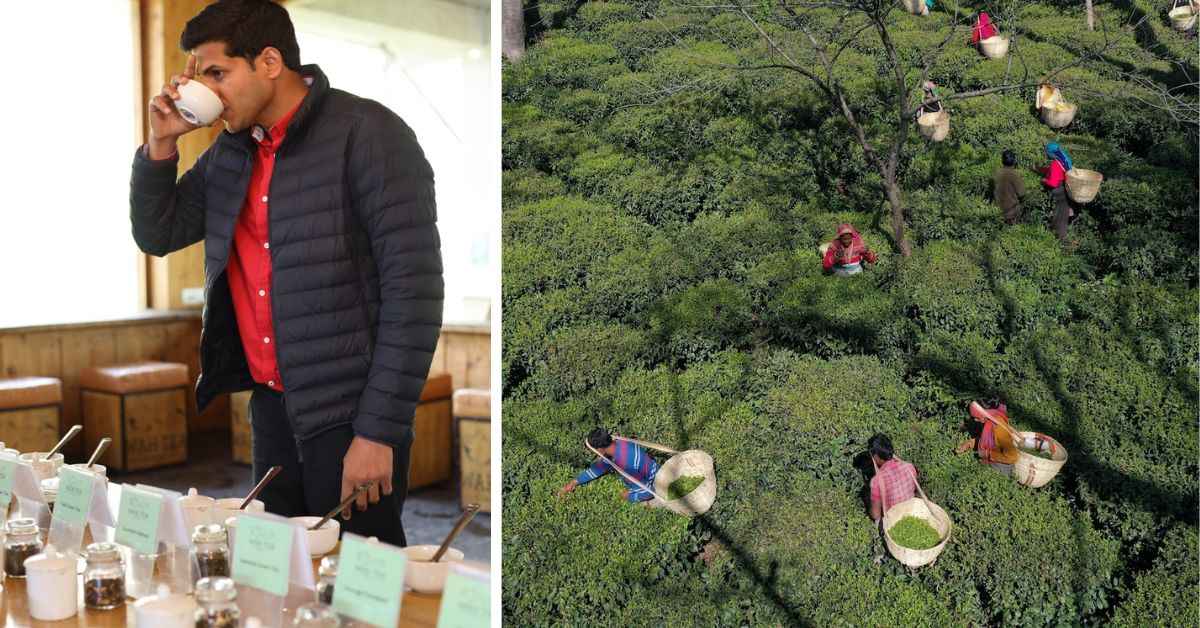
Right from the plucking of the tea leaves to their processing into over 20 different varieties of tea, the tea estate at Wah is a success story.
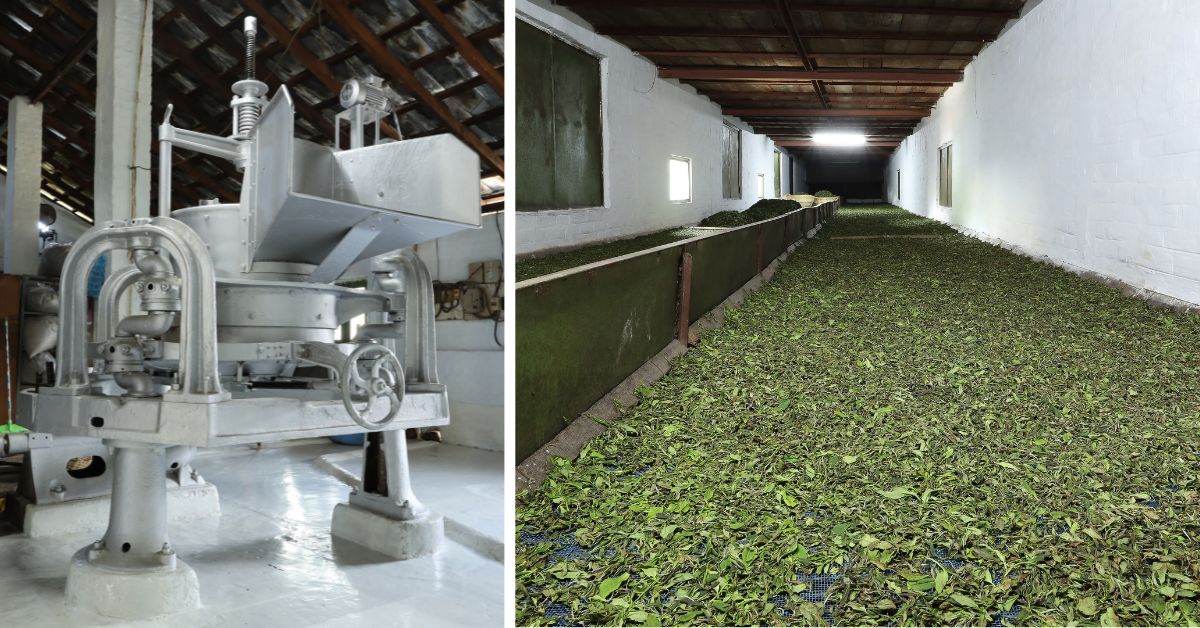
By 1960, the ‘Chaiwalas’ were producing approximately 10 million kilograms of tea from estates across India.
Then, head to the tea room for a where ample varieties of brews are sprawled out for you to try.
Advertisement
Coffee drinkers, don’t fret. Your adventure lies in the birdwatching — where you will spot the Himalayan Thrush, Indian Grey Hornbill, and other beauties. Bonfire nights, trekking, paragliding, and visits to the nearby villages will give you a front-row seat to the vignettes of the local life of Himachal. Or you can simply wander around the estate, which has many unexpected pockets of calm.
When you aren’t exploring the outdoors, there are the feasts at the homestay to keep you company. Made from fresh produce off the land — strawberries, apricots, peaches, rosemary, oregano, parsley, basil, broccoli, peas, and zucchini — the meals feature the Kangra Dham (consisting of a variety of lentils and seasonal vegetables, all slow-cooked over a woodfire), Himachali khichri (a meal of lentil curry and rice), sarson saag (a mustard paste preparation), makki roti (Indian flatbread made with corn flour) and desserts like moong dal ka halwa (a sweet made with lentils).
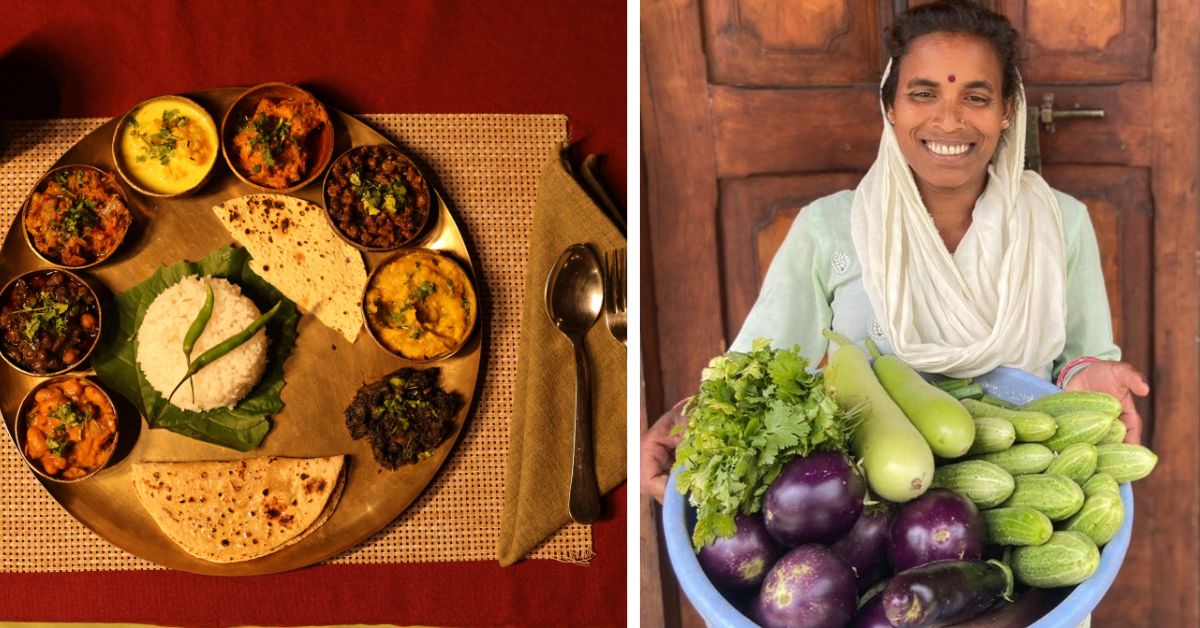
All the meals prepared at The Lodge at Wah are made from produce grown on the land using organic farming practices.
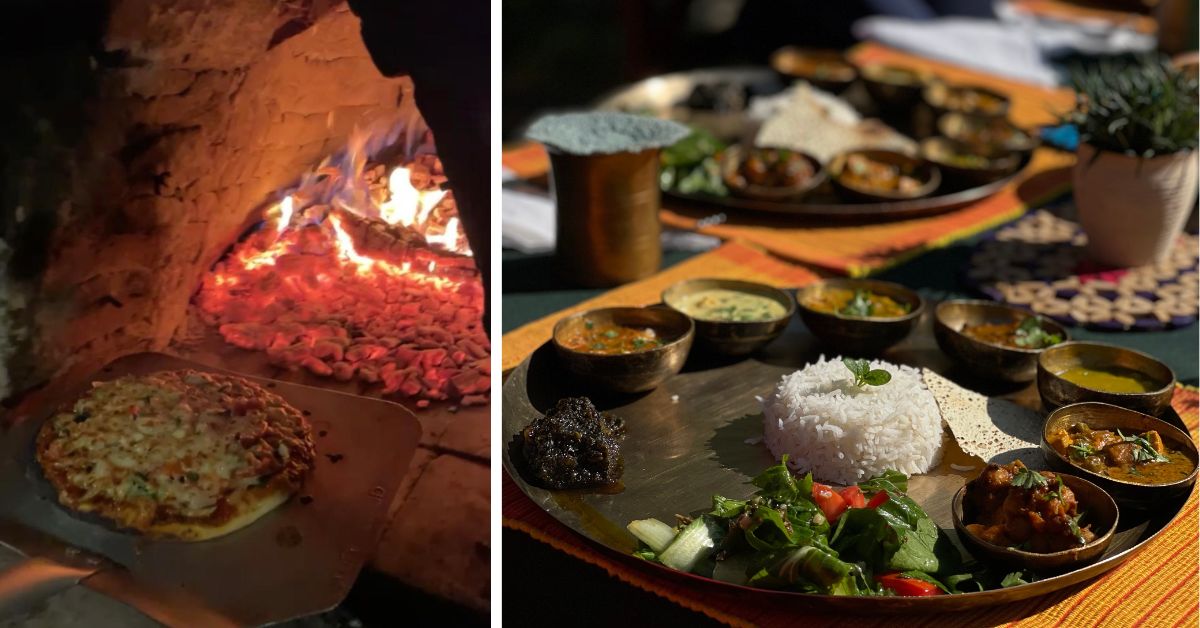
The Kangra Dham is among the most loved items at The Lodge at Wah and features a range of dishes with a history behind each.
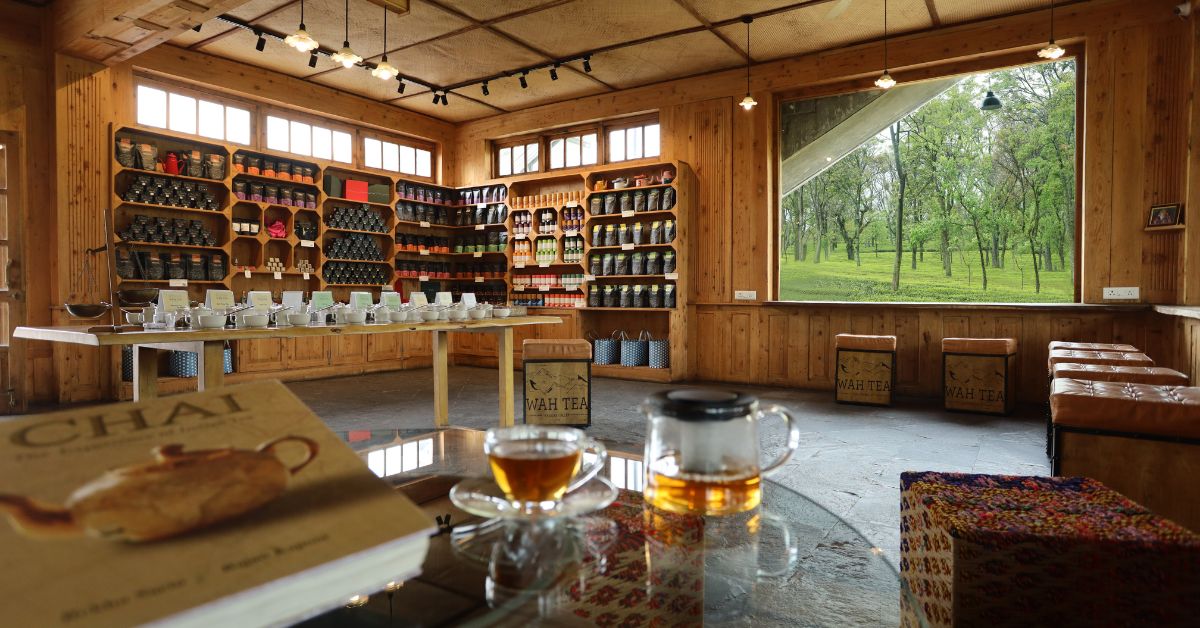
The tea tasting room at Wah features over 20 different varieties of tea, each with its own unique aesthetic and taste.
While the protagonists of the meal are delicious, the accompaniments are too. These include sauces, and juices. “The homemade peach ice cream, made using our organic farm-grown peaches, is the best way to cool off during a warm summer day,” Upasana smiles.
But what really accentuates the culinary score are the indigenous flavours of the land. “We grow a lot of the vegetables and herbs and also extract our own oils.” The cooking techniques further add to the charm, with meals cooked in earthen and kansa (bronze) pots using firewood.
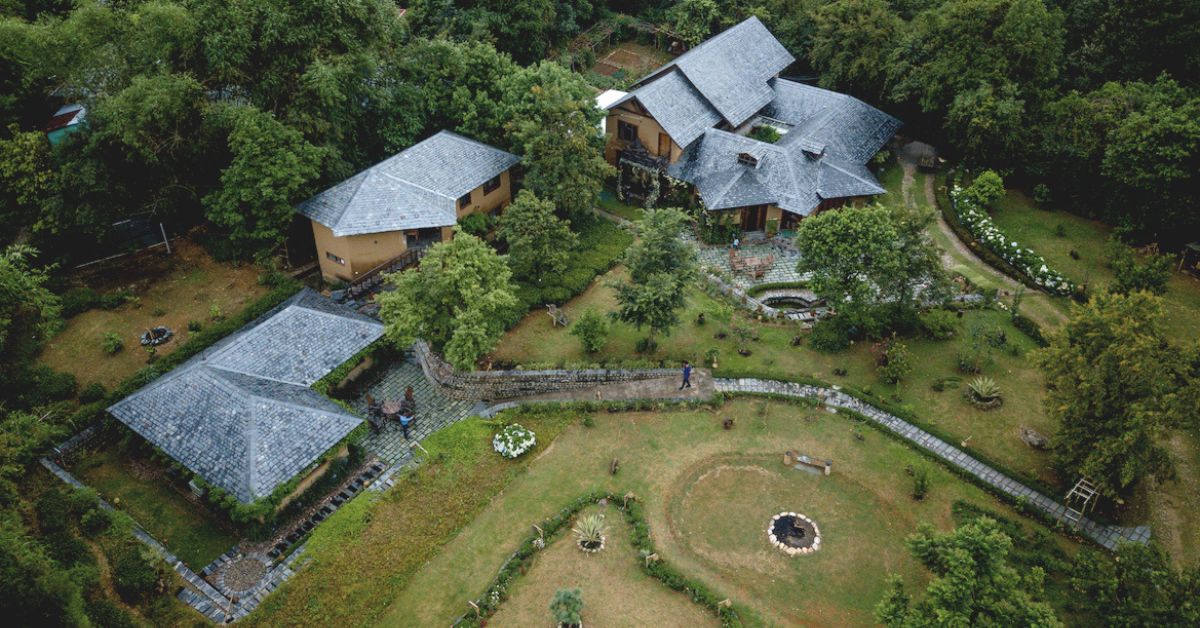
The Lodge at Wah is one man’s dream to escape city life and live in a space untouched by pollution.
The organic quotient of the estate also deserves credit. “We’ve been pesticide-free for over a decade now. Instead, we’ve been resorting to apple cider vinegar that we make in-house, chilli oil, neem oil, etc,” Upasana explains. This ties in with the family’s commitment to preserve their legacy with the least disruption to nature.
Dusk has turned to night at Wah and Deepak is almost done with his tale. The many empty cups of chai on the table are proof that the story was a long one. “I wanted to create a pure and wholesome . That’s what I did,” he smiles.
Tomorrow, Deepak will have a new tale to tell.
Book your sustainable vacation .
Edited by Khushi Arora; Pictures source: Upasana
At his home-turned-homestay, ‘The Lodge at Wah’, an eager audience awaits him.
A tea connoisseur by day, Deepak turns into a storyteller by night. Cups of chai are passed around the group as he begins his tale: “In the early 1900s, our forefather Sheo Parsad owned a simple provisions shop in Dehradun. Here, he also sold tea that he purchased from Goodrich Tea Estate in Kaulagarh.”
Advertisement
Sheo soon discovered that the beverage was a hit with customers. Thus began his quest to diversify into tea. For ages, the ‘Chaiwalas’ — as Deepak’s family came to be respectfully known — continued their storied tradition of growing and brewing tea. Fun fact: by 1960, they were producing approximately 10 million kilograms of !

The Wah Tea Estate was started in 1857 by the British and has witnessed decades of tea cultivation.

Deepak’s family was known as the ‘Chaiwalas’ because of their long-winded history with tea.
But it is not just the family’s tryst with tea that is superimposed against a rich history; it’s also the land on which the homestay now stands. As Deepak shares, it dates back to 1857, when it was first established by the British! The estate saw decades of continuous cultivation and even survived an earthquake which struck the region in 1905.
The Lodge at Wah: Inspired by local traditions and ideas
Deepak’s son, Surya Prakash, a fourth-generation tea virtuoso, recalls the vacations he spent at the family’s tea estate as some of his best. However, these visits were short-lived, owing to the absence of a family home in Kangra. It was during one such trip that Deepak had his moment of catharsis. “I decided to build a home. A sustainable one,” he shares.
Advertisement
He reasons, “I grew up on tea estates, and have always enjoyed . For many years, this was missing for us at Wah Tea Estate. Spending time in the city meant having to deal with pollution and other carcinogenic substances. I felt it was time to correct that.”
What started as an idea for a single cottage soon matured into a homestay with three. “Dad got a tad bit excited,” Deepak’s daughter-in-law, Upasana, says.
[IMG alt="The brews found at The Lodge at Wah are prepared from tea leaves that are grown using organic methods of farming
"]
The brews found at The Lodge at Wah are prepared from tea leaves that are grown using organic methods of farming.

The Wah Tea Factory was where the manufacturing, processing and brewing of tea took place to then be retailed across India.

The cottages at The Lodge at Wah are done up sustainably with wood, slate and mud — featuring extensively in the decor.
But the rules were clear. Everything had to imbue sustainability at its core. Upasana, taking us on a verbal tour of the property, shares that the structures were built entirely from mud sourced during on-site excavation, along with stone, wood, and slate.
Advertisement
The cottages are an aesthetic rebuttal to the assumption that sustainability comes at the price of beauty. We virtually go from room to room, that are a carousel of local architectural sensibilities, right from their roofs — inspired by the gaddi tribe homes which imbibe ingenious leakage management concepts — to the decor. Hand-chiselled river stones factor into the construction, and the no-paint mandate is taken seriously.
But it is the woodwork that has the best story to tell.
Upasana articulates it. “There was an old Palampur courthouse that was being demolished during the . We were able to pick up and recycle the cedar and pine wood. The roof lining details, bannisters from witness stands, and even whole doors and windows are originally from the old courthouse.”
Advertisement
It took six years for the dream project to see the light of day. But when it did, Palampur smiled.
A cup of chai with a slice of sustainability
At The Lodge at Wah, you name the chai you are in the mood for, and chances are it is grown, processed, brewed and served right on the land. During the tea tour, you’ll have a chance to make an acquaintance with these different varieties which will give you an insider pass into the tea manufacturing process. Learn the nuances of tea production, including the processes of withering, rolling, fermenting, drying, and sorting.

The Lodge at Wah is a sustainable homestay in Palampur, Himachal Pradesh that is built on a legendary tea estate.

Right from the plucking of the tea leaves to their processing into over 20 different varieties of tea, the tea estate at Wah is a success story.

By 1960, the ‘Chaiwalas’ were producing approximately 10 million kilograms of tea from estates across India.
Then, head to the tea room for a where ample varieties of brews are sprawled out for you to try.
Advertisement
Coffee drinkers, don’t fret. Your adventure lies in the birdwatching — where you will spot the Himalayan Thrush, Indian Grey Hornbill, and other beauties. Bonfire nights, trekking, paragliding, and visits to the nearby villages will give you a front-row seat to the vignettes of the local life of Himachal. Or you can simply wander around the estate, which has many unexpected pockets of calm.
When you aren’t exploring the outdoors, there are the feasts at the homestay to keep you company. Made from fresh produce off the land — strawberries, apricots, peaches, rosemary, oregano, parsley, basil, broccoli, peas, and zucchini — the meals feature the Kangra Dham (consisting of a variety of lentils and seasonal vegetables, all slow-cooked over a woodfire), Himachali khichri (a meal of lentil curry and rice), sarson saag (a mustard paste preparation), makki roti (Indian flatbread made with corn flour) and desserts like moong dal ka halwa (a sweet made with lentils).

All the meals prepared at The Lodge at Wah are made from produce grown on the land using organic farming practices.

The Kangra Dham is among the most loved items at The Lodge at Wah and features a range of dishes with a history behind each.

The tea tasting room at Wah features over 20 different varieties of tea, each with its own unique aesthetic and taste.
While the protagonists of the meal are delicious, the accompaniments are too. These include sauces, and juices. “The homemade peach ice cream, made using our organic farm-grown peaches, is the best way to cool off during a warm summer day,” Upasana smiles.
But what really accentuates the culinary score are the indigenous flavours of the land. “We grow a lot of the vegetables and herbs and also extract our own oils.” The cooking techniques further add to the charm, with meals cooked in earthen and kansa (bronze) pots using firewood.

The Lodge at Wah is one man’s dream to escape city life and live in a space untouched by pollution.
The organic quotient of the estate also deserves credit. “We’ve been pesticide-free for over a decade now. Instead, we’ve been resorting to apple cider vinegar that we make in-house, chilli oil, neem oil, etc,” Upasana explains. This ties in with the family’s commitment to preserve their legacy with the least disruption to nature.
Dusk has turned to night at Wah and Deepak is almost done with his tale. The many empty cups of chai on the table are proof that the story was a long one. “I wanted to create a pure and wholesome . That’s what I did,” he smiles.
Tomorrow, Deepak will have a new tale to tell.
Book your sustainable vacation .
Edited by Khushi Arora; Pictures source: Upasana
